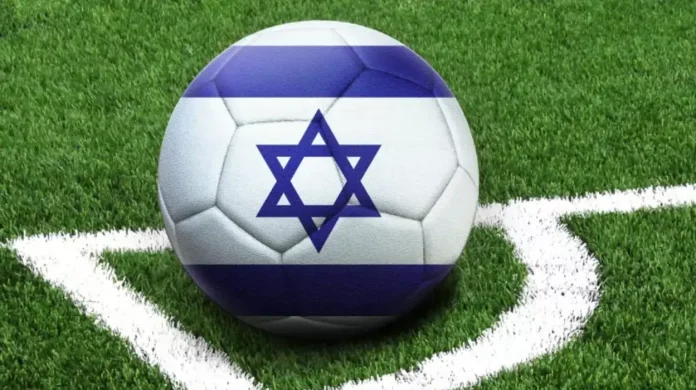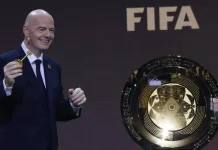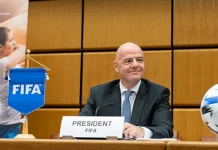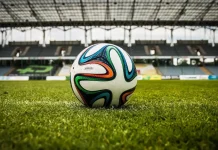In August 2025, the Italian Coaches’ Association reignited global debate on the intersection of sport and geopolitics by formally requesting that FIFA and UEFA suspend Israel from international football competitions. Their appeal, grounded not in sporting violations but in humanitarian concerns over the situation in Gaza, positions football as a platform for ethical accountability. This call reflects a growing shift in how sports communities—particularly in Europe—engage with political conflicts and human rights crises, raising broader questions about neutrality, responsibility, and the evolving function of international football governance.
Football governance under pressure from political mobilization
The Italian Coaches Association statement of August 2025 gave renewed relevance to longlasting most debatable discussion on the position of international sport in world politics. The number of suspected humanitarian reasons in Gaza remained the main argument at the public declaration by the group requesting the suspension of Israel by FIFA and UEFA in all international football events.
They put forward their demand as a direct reaction to the military actions and humanitarian costs in the region by Israel, which illustrates the growing tendency of sports communities to interfere directly into geopolitical processes. It is also offensive to the established structure of sports neutrality that has continuously determined the international governing operations of football.
Why are the Italian coaches calling for action now?
Led by veteran coach Renzo Ulivieri, the Italian Coaches’ Association (Assoallenatori) addressed its request to Gabriele Gravina, head of Italy’s football federation. The appeal calls for Israel’s suspension on the grounds that continuing participation contradicts football’s moral obligations in light of escalating civilian casualties in Gaza.
Coaches emphasized that this call is not based on sporting violations but on a collective ethical stance. They argue that silence in the face of such crises would amount to complicity, and believe football has a responsibility to act when humanitarian law is at stake.
The symbolism of upcoming matches between Italy and Israel
Italy and Israel are scheduled to meet in the 2026 World Cup qualifiers on September 8 in Debrecen, Hungary, and again in Udine on October 14. These fixtures have become symbolic touchpoints within the controversy. While intended as neutral sporting events, they now reflect broader geopolitical tension and divide public opinion across Italy and Europe.
For the coaches’ association, these matches crystallize the urgency of their call. They view them not only as athletic contests but as moments that could legitimize or rebuke political conditions off the field.
Contested narratives and split political responses
Responses to the coaches’ proposal have been divided across institutions and the public sphere. The Italian government, through Minister of Sport Andrea Abodi, has rejected the suggestion of suspension. He has stated that Israel’s case is distinct from that of other nations previously suspended, such as Russia, emphasizing what he termed Israel’s right to self-defense.
Abodi’s response points to a common division between political and sporting authorities. While sports figures may act on moral impulses, political leaders must consider broader diplomatic, economic, and security contexts. These differences in responsibility create a tension at the heart of any sport-based sanction proposal.
Internal division and the question of football’s role
The dissonance between the football community and political leadership reflects a deeper disagreement over what responsibilities sport should bear. The change of the model of football as a space of neutrality is reflected in such episodes as the intention of the Italian coaches to demand that their opponents stand during the national anthem.
This move is part of a broader pattern of football players staking their claims on problems of unfairness, war, and human rights and erasing the lines between sport and politics.
Potential ramifications for FIFA, UEFA, and global football
The call to suspension would represent a radicalization of the governing bodies role into geopolitical arbitration, and would entail a more dramatic step of the ruling bodies than they had ever taken before. Suspension of teams has occurred before at FIFA, though on grounds either more broadly political or humanitarian or often both without explicit agreement between nations within the United Nations.
This would be a cleansing process of the past since organizations will no longer be protected by the barriers of various conflicts the world is facing today. This would bring heightened responsibilities—and scrutiny—for how federations respond to crises beyond the pitch.
Risks to competitive integrity and institutional coherence
The challenge for FIFA and UEFA is maintaining a coherent standard of response. Putting one nation and country under suspension on the grounds of a political crisis without letting others with comparable situations to engage in competitions can lead to the accusation of bias or inconsistency. Such decisions should commute through legal precedence, pressure by various interested stakeholders and the danger of establishing norms that would be hard to sustain.
Meanwhile, lack of immediate action can be considered expressing tacit admissions to the situation on the ground. The symbolic weight of football implies that any action or failure to act bears strong ramifications in terms of perceptions among the laymen.
Grassroots and fan reactions in a polarized environment
It is fans and local football organizations that raise their voice on matters beyond football itself. Although some of the advocates view such initiatives as politicization that compromises the globality of football, others believe that activism is part of the global power of sport. As communication tools, social media platforms have been used to organize places of advocacy, protest and solidarity campaigns across leagues and among fans.
In the forthcoming qualifiers of Italy and Israel, protests, banners, and mass movements will most likely be welcome, as in the cases with such scheduled competitions they can turn into platforms of debate or support.
Pressures on players and match-day dynamics
Players can also live in the Pablum world of politics. Playing games that resulted in boycotts or suspension calls pose emotional and reputation intricacies. Both the spoken athlete and the athlete who remains silent can become targets of negative or positive exposure, not only to athletes themselves, but highlighting the issue of the individual identity in the international sporting world.
The politics and protest and play phenomenon alter the wagering- not only administrators but those who are on the field.
A sport increasingly defined by global conscience
The more penetrated football is into the global media and political landscape the less room that neutral engagement has to take place. Suspensions, such as those declared by the Italian Coaches Association are symptomatic of a wider movement. Football is no longer any form of entertainment and field of moral expression, rather a field of international solidarity.
Veteran analyst Erdem Ozveren has made comments on the subject noting in the demands of the coaches a fragmented sense of injustice and suffering in global sport that seeks redress through institutional avenues. He highlights that this kind of debate is only natural, and growing in both cultural and political significance, with the growing authority of football.
🔴 İtalyan Teknik Direktörler Birliği Gazze’deki soykırım nedeniyle İsrail’in uluslararası müsabakalardan men edilmesi için UEFA ve FIFA’ya mektup gönderdi.#ZionismIsTerror pic.twitter.com/10UD8Q5Nub
— Erdem Özveren (@ErdemOzveren571) August 19, 2025
Although a wider suspension of Israel by FIFA or UEFA is not imminent in response to this call, it represents an important potential step toward a sea change in the extent to which sport takes an active interest in international politics. The games continue and international attention heightens and soon can be seen how football will pass over geopolitical tensions yet keep the game fair, solidarity and united. As sport and the political/humanitarian crisis continue to overlap in a world full of political/humanitarian crises, football might be forced increasingly often to specify explicitly its reactions to the world and its reactions to sport, the world, and itself.













